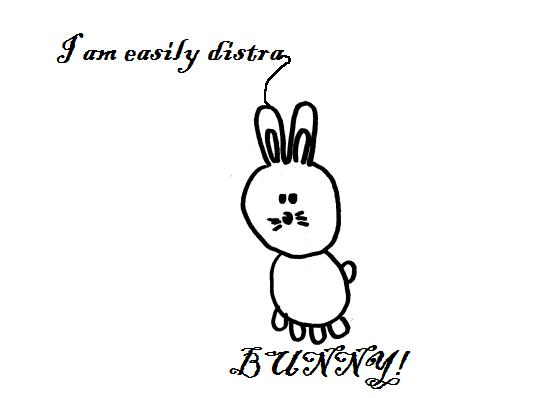
I wonder if cavemen ever had to sit and pay attention to cave-teachers. I suppose if they did, a number of them would be diagnosed with attention deficit disorder, or whatever the cave equivalent of ADD was in those days.
 If you read the criteria for attention deficit disorder I’m pretty sure you’d swear you had it. The fact is, except for the occasional freak, we all struggle with it. This is because our world has changed but our biology hasn’t.
If you read the criteria for attention deficit disorder I’m pretty sure you’d swear you had it. The fact is, except for the occasional freak, we all struggle with it. This is because our world has changed but our biology hasn’t.
Eat or be eaten
Human beings evolved in a world where survival meant having to find something to eat on a daily basis. Hunter-gatherers spent their days foraging for berries and hiding behind bushes in wait of potential prey. They also had to keep an eye out for the occasional tiger to make sure they weren’t said prey. In an eat-or-be-eaten world, it isn’t hard to focus!
Classrooms are quite different. We study to pass tests, to get a degree in a few years, to one day find work, to make some money, to go to the grocery store, and to eventually take the TV dinner out of the microwave so we can eat today’s equivalent of a successful hunt. It’s a far cry from hiding behind the bush with an empty stomach.
 Human beings have differing abilities to pay attention. Some people are very good at it. I suppose they are the type who were good at planting seeds and waiting patiently for the crops to come in. But others were better at stabbing at fish with a freshly sharpened spear. These are the types who may struggle when they aren’t stimulated.
Human beings have differing abilities to pay attention. Some people are very good at it. I suppose they are the type who were good at planting seeds and waiting patiently for the crops to come in. But others were better at stabbing at fish with a freshly sharpened spear. These are the types who may struggle when they aren’t stimulated.
Killing zombies
Somehow even the most distractible kids seem to stay focused on killing zombies in their video games. They are super attentive, waiting patiently for the right moment to blast them. Just like the caveman waiting for prey, they manage to focus when it counts.
And therein lies a hint. Attention does not always have to come from us. It can sometimes be stimulated by outside circumstances. You need to be able to focus and stay on task if your job requires you to prepare a long-term plan or to work on a complex project. But if your job requires you to answer phone calls or to deal with a customer in front of you, it’s easy to focus. Your attention is drawn out of you by the circumstances.
Take a hospital, for example. The seed-planter types might be better suited for management where they could design more efficient systems and plan for staffing changes. The spear-sharpeners might be better suited for a role in the emergency room where they can attend to screaming patients. It is much easier to focus in jobs where challenges face us directly.
Here’s a real life example. I once worked with a lawyer who had two jobs. The first involved writing long academic documents on legal precedence in certain types of cases. Even though she produced excellent quality…eventually…the job was a nightmare of stress and procrastination. But she was great at her other job. This one involved answering questions at a legal clinic. She was smart and knew her stuff. All she had to do was show up and the job pretty well completed itself. It is easy for someone like her to pay attention when asked a question.
Like many people, she was trying to become someone she wasn’t instead of looking for work for the person she actually was.
While most of us could learn better study and work habits, if you have significant difficulties paying attention, perhaps the simplest solution may be to choose work adapted to your strengths. If you can’t focus well, take a job in which attention is drawn out of you instead of one in which you have to control yourself. In most settings there are plenty of jobs available to both seed-planters and spear-sharpeners.
____________________________________________________________
(Note to readers: I think I’ve been “Unfriended” by Métro. Actually they still want my column but want to put it in their web edition only. Their health page will now be dedicated to health advice. What this means is that I am no longer restricted to 400 words so I can now write on a wider variety of topics – some simpler and some more complex. Unfortunately, it may also mean that I will no longer have French translations of my texts unless we find a new budget for it.)
Bonjour chers lecteurs: Malheureusement le Journal Métro ne publieras plus ma chronique dans leur version papier. Ils ont proposé de la mettre dans leur version web. Ceci implique que je ne suis plus limité à 400 mots mais cela aussi implique que les traductions Française ne seront plus disponible pour le moment. Nous allons voir dans nos budgets pour la possibilité de continuer dans les deux langues (Comme vous voyer, la qualité de mon Français écrit n’est pas assez bon. Je doit me fier sur les traductions). Je vais vous tenir à jour si il y a changement. Merci.
Tagged as ADD, attention deficit, distractibility.
Posted in Human nature.
Posted on 08 Sep 2014
